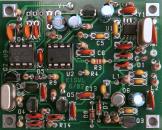What's happening at BCARA
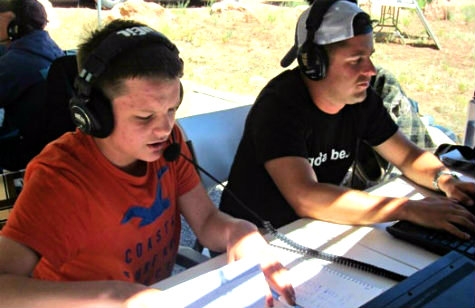
What is Ham Radio? (click here)
What is Ham Radio? Amateur Radio (ham radio) is a popular hobby and service that brings people, electronics and communication together. People use ham radio to talk across town, around the world, or even into space, all without the Internet or cell phones. It's fun, social, educational, and can be a lifeline during times of need. You can set up a ham radio station anywhere! In a field... ...at a club station.... ...or at home. Although Amateur Radio operators get involved for many reasons, they all have in common a basic knowledge of radio technology and operating principles,...
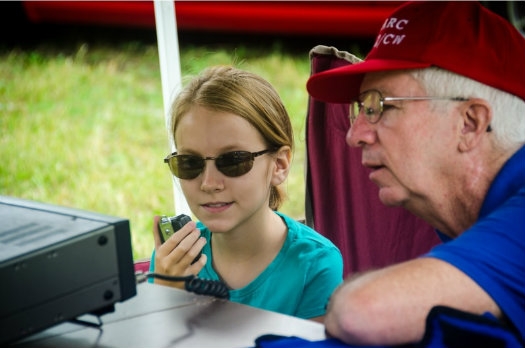
Why should I get licensed? (click here)
Why should I get licensed? Before you can get on the air, you need to be licensed and know the rules to operate legally. US licenses are good for 10 years before renewal and anyone may hold one except a representative of a foreign government. In the US there are three license classes—Technician, General and Extra. Technician License The Technician class license is the entry-level license of choice for most new ham radio operators. To earn the Technician license requires passing one examination totaling 35 questions on radio theory, regulations and operating practices. The license gives access to all Amateur Radio frequencies above...
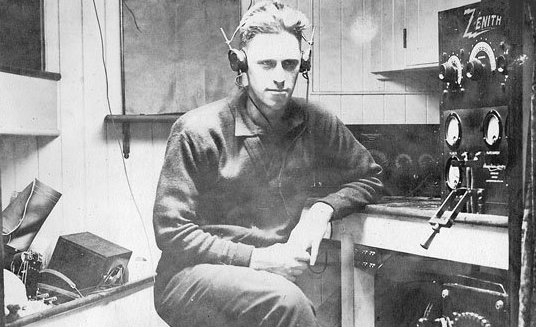
Ham Radio History (click here)
In 1873, James Clerk Maxwell presented his theory of the electromagnetic field. In 1901 Guglielmo Marconi communicated across the Atlantic with a radio device using high power and giant antennas. To curb interference, Congress approved the Radio Act of 1912, which required amateurs to be licensed and restricted to the single wavelength of 200 meters. In 1914 the American Radio Relay League was founded by Hiram Percy Maxim, who found that messages could be sent more reliably over long distances if relay stations were organized. Transatlantic transmitting and receiving tests began in 1921 and by July 1960 the first two-way contact...
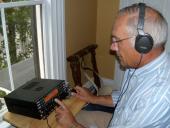
Your First Station (click here)
Your Amateur Radio station may change, but you have to start somewhere, right? Here are some fundamentals that all Amateur Radio stations have in common: Transceiver Power Supply Antenna System The Transceiver Selecting your transceiver will largely depend on how much you want to spend and what you hope to do. If you want to explore long-distance contacts on the HF bands, you’ll need an HF transceiver. If you are interested in chatting with local friends on the VHF or UHF bands, look for a VHF+ FM transceiver. Build Your Own Radio Most hams buy their radios factory assembled,...
-
What is Ham Radio? (click here)
-
Why should I get licensed? (click here)
-
Ham Radio History (click here)
-
Your First Station (click here)
Member Login
Main Menu
Who's Online
We have 12 guests and no members online
Meetings
ARRL News
American Radio Relay League | Ham Radio Association and Resources
The American Radio Relay League (ARRL) is the national association for amateur radio, connecting hams around the U.S. with news, information and resources.-
Former FCC official John B. Johnston, W3BE, Silent Key
John B. Johnston, W3BE (SK), of Derwood, Maryland, passed away on January 7, 2026. He was 98 years old. Born in Zanesville, Ohio, Johnson was a World War II veteran and served in the Pacific Theater. He was first licensed on March 15, 1954, as KN2HHR. Following military service and college, he worked for the General Electric Company, and then as an engineer for the Federal Communications Commis...
-
The ARRL Solar Update
Solar activity continued at low levels this week. Low level C-classflares were observed from Regions 4342 and 4353. The majority of theregions were either stable or in decay. New Regions 4359, 4360, and4361 emerged on the disk and were numbered. No Earth-directedCoronal Mass Ejections (CMEs) were observed. The forecast calls forsolar activity to remain at low levels with a chance for M-classfla...
-
North Carolina Students Scheduled to Make Contact with the International Space Station
580 students at Conn Magnet Elementary School in Raleigh, North Carolina, will participate in a conversation with an astronaut on board the International Space Station (ISS). Amateur Radio on the International Space Station (ARISS) has confirmed the contact, scheduled for Friday, January 30, 2026, just after 10:00 AM EST. Radio communications will be provided by the Raleigh Amateur Radio Socie...
-
ARRL to announce winner of Icom® Dream Station at HamCation®
-
ARRL Director Tharp, KB7HDX, Receives Search-and-Rescue Award
Mark Tharp, KB7HDX, Director of the ARRL Northwestern Division, has received the Hall of Honor Award for 35 years of service to the Yakima Search and Rescue group. Tharp called the award “unexpected and very much appreciated,” adding, “You don’t do volunteer work to get awards, you do it because it’s needed and makes a difference.” Tharp was first licensed in 1989 and now holds an Extra Class...
-
Student Coding Competition is Underway with $25,000 Award
ARRL The National Association for Amateur Radio® is asking members to help encourage licensed youth in their communities to participate in the ARRL Student Coding Competition, an initiative focused on developing practical resources for the Amateur Radio Service. The competition, which began January 1, 2026, challenges young amateurs to create a mobile application that ARRL will use as a long-te...

